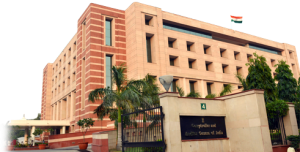President says Govt working hard with admirable urgency to achieve SDGs
While praising CAG’s work in using data analytics in its audit work, the President Kovind emphasised on strengthening accountability mechanisms at the local levels.
 P resident of India Ram Nath Kovind mentioned that the Sustainable Development Goals (SDGs) are mirrored in the development agenda of the nation.
P resident of India Ram Nath Kovind mentioned that the Sustainable Development Goals (SDGs) are mirrored in the development agenda of the nation.
He further said that despite resource constraints, “The government has been working hard and with admirable urgency to achieve such ambitious goals as universal rural electrification, road and digital connectivity, expansion of clean and renewable energy, sanitation and housing for all, and universal elementary school education”.
He was speaking while inaugurating the 29th Accountants General Conference organised by the Comptroller and Auditor General (CAG) of India in New Delhi on October 10.
The President while noting the theme of the year’s Conference – ‘Auditing and Accounting in a Digital Era’, said that it is “the right occasion and opportunity to introspect and deliberate on what needs to be done to further our mission of promoting accountability, transparency and good governance”. “This is extremely relevant today when the government is making great strides in ushering in Digital India,” he said.
“The CAG is mandated to keep a watch on the system of governance in the country to ensure the best use to taxpayer’s money under Article 148 of the Indian Constitution.”
The President said that in keeping with the mandate, “It has graduated from promoting accountability through accounts to ensuring that right things are done in the right and least expensive way.”
The two-day conference, attended by Accountants General from all over the country, is being held at the new building of CAG located at Deen Dayal Upadhyay Marg.
The President also spoke eloquently about CAG’s work, especially in using data analytics in audit work and coming out with a data management policy. He said that through the use of data analytic techniques, CAG can assist in not only giving insights for the present but also aid in providing credible forecasts.
“With the tools appropriate to managing and examining the expanding data in a digital economy, the CAG is positioned to anticipate long-term trends and emerging issues related to the economy, education, health, environment, national security among others. These warrant the attention of lawmakers and the executive,” he said.
As the chair of the United Nations Board of Auditors, CAG dispatches audit teams to examine and appraise programmes implemented by the UN and its agencies.
“You will be doing a great service to the nation if you share the good practices followed by these entities so that we learn new and efficient ways of programme delivery,” held President Kovind.
Speaking about “massive decentralisation of funds, functions and functionaries”, he stated that there is “greater flexibility” available to state governments.
“A number of welfare schemes are also implemented through urban local bodies and panchayats. However, it is a fact that accountability mechanisms at the local level are not as robust. The social audit to account whether the money was spent properly, and made the intended difference, is mostly conducted by the scheme beneficiaries,” he said.
He added, “Here the CAG as an institution could partner with local citizens and state audit societies to train them, build capacities and issue advisories on framing of guidelines, developing criteria, methodology and reporting for audit.”
Lok sabha Speaker Sumitra Mahajan, Public Accounts Committee Chairman Mallikarjun Kharge and the CAG of India Rajiv Mehershi were the other speakers at the conference.
The President further said “audit is not an end in itself. It is a means to make governments work better”. “We have to emphasise outcomes as a more meaningful measure of programme value than output. The CAG, President Kovind held may deliberate on how would it, as an organisation, identify, understand and measure outcomes to study the impact of programmes.
“Such a study of programme effectiveness would be a big boon to policy makers. Such a study should also include a dialogue with the implementing agencies to understand their motivations and perspective,” he said.
